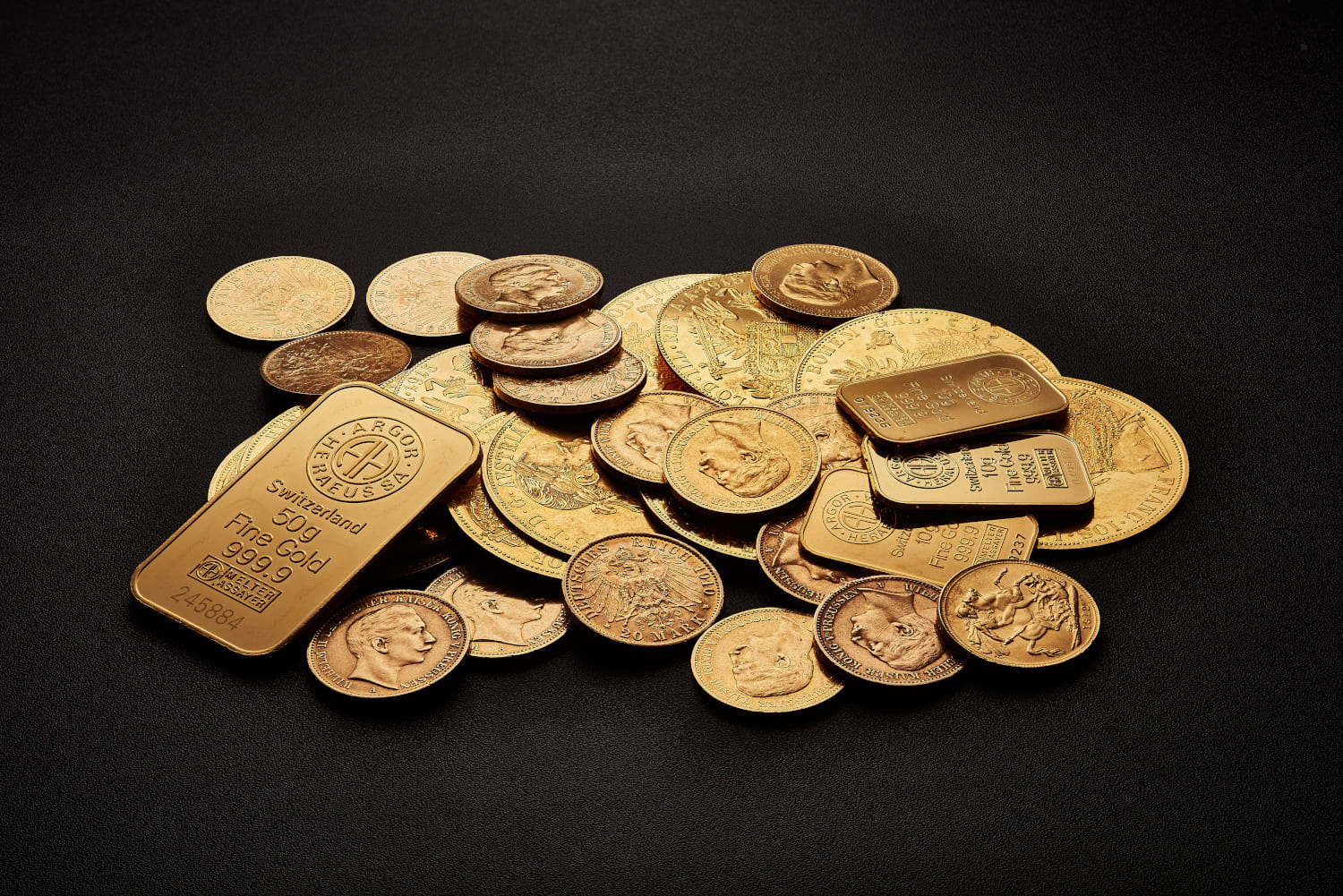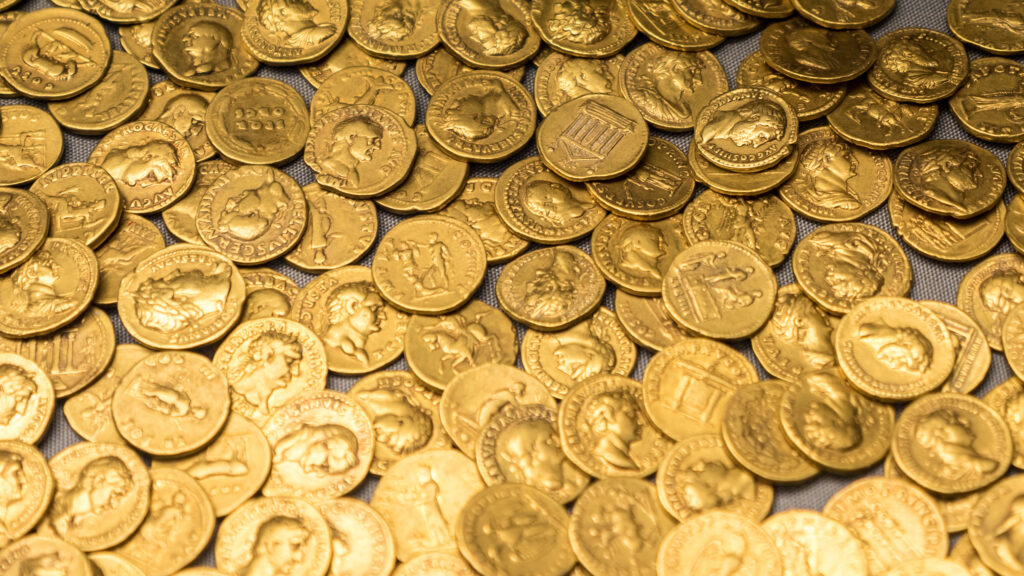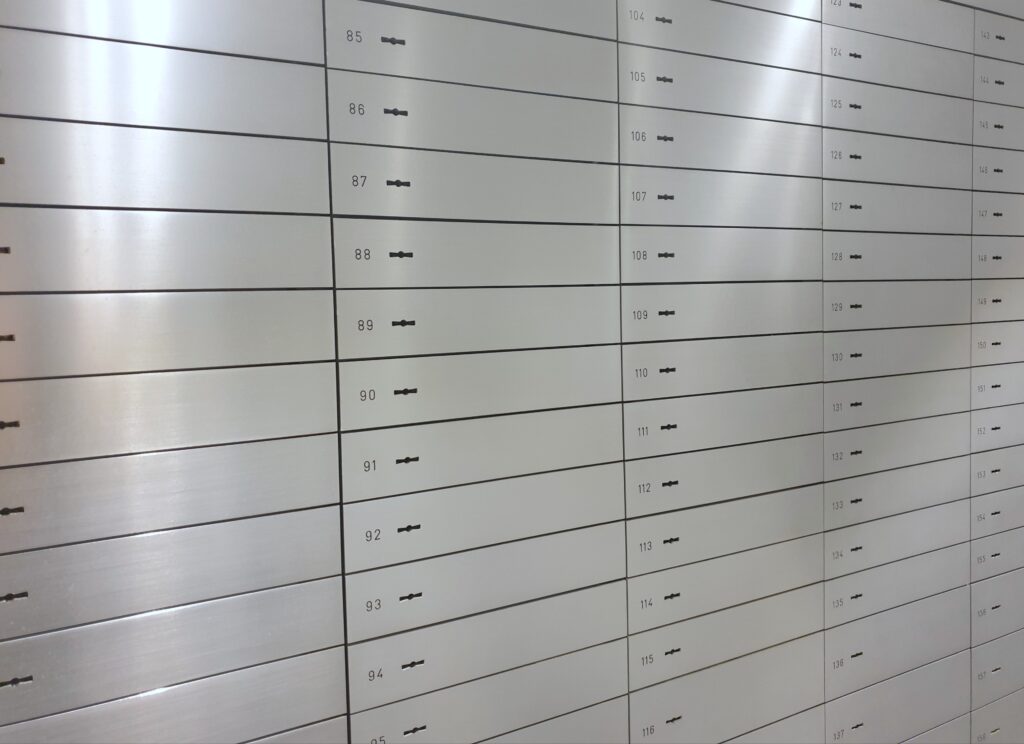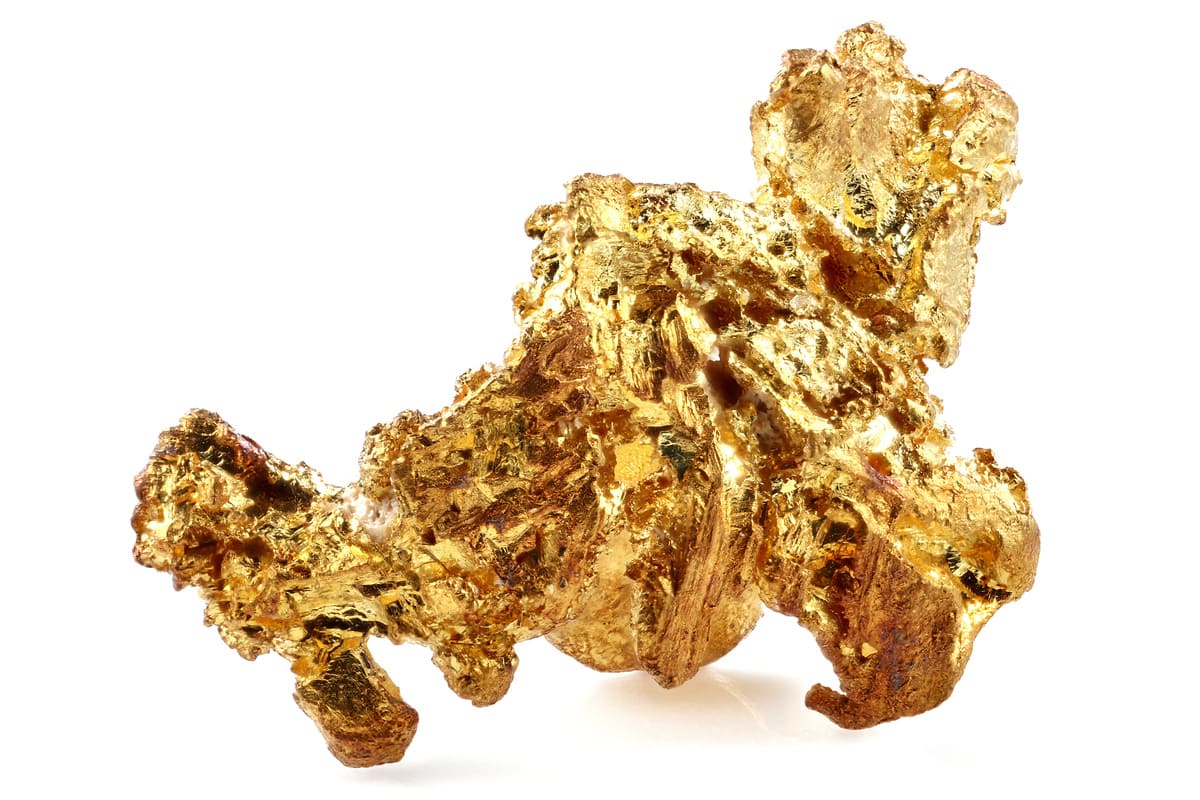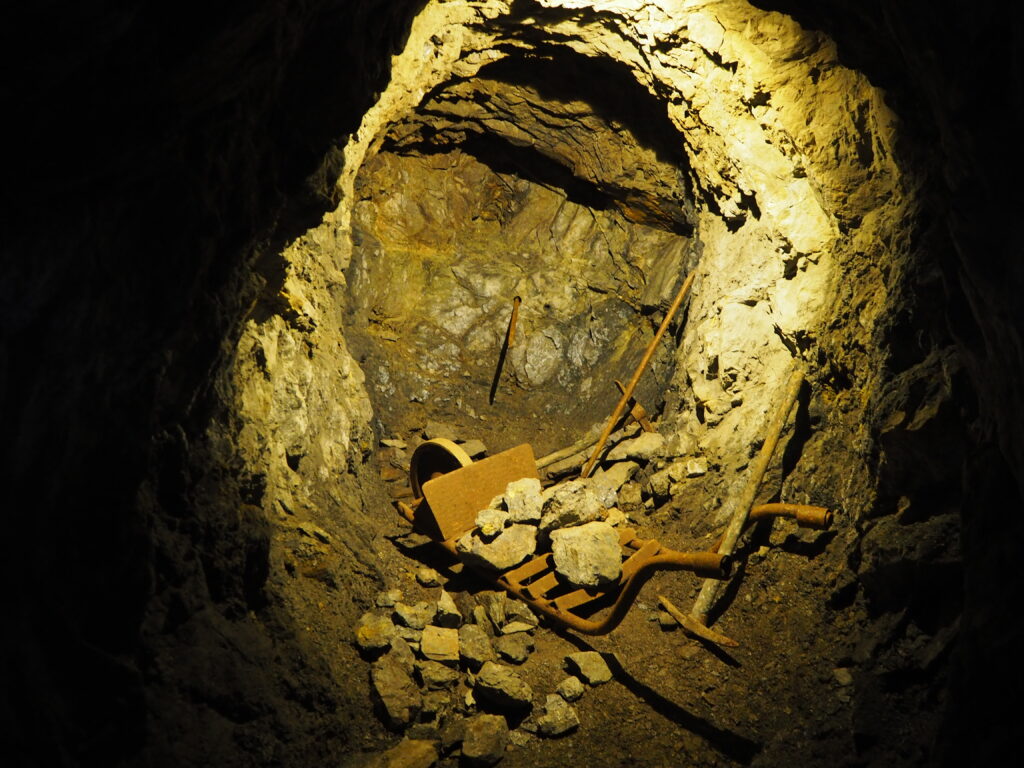Bequeathing precious metals in individual custody
Additional information > Prevailing conditions for value storage in Switzerland and Liechtenstein > A stored gold legacy – provisions & bequests
What happens to stored gold or silver holdings in the event of a death?
The stability of gold and silver investments allows owners to make long-term plans. Thus physical bars and coins are often stored in secure individual custody in Switzerland. But what happens upon the death of a client? Or if they should lose mental capacity through accident or illness? Relatives and heirs should be informed in such circumstances, and testators can (and should) make arrangements during their lifetime.

© photobc1 - stock.adobe.com
It’s quite common for precious metals to be stored in domestic or duty-free warehouses for a long period of time. Here, they can serve as a nest egg to be called upon in dire emergencies, or be used to improve your quality of life in older age. Ideally, of course, such reserves will never be called upon at all. In which case these valuable assets can one day be passed on to children or grandchildren in order to ensure they too are well provided for throughout their own lives. Furthermore, storage contracts arranged with specialist companies like Swiss Gold Safe are always managed with the utmost discretion and are guaranteed to respect client privacy to the full. Only the contractual partner and/or their authorised representatives can ever gain access to stored gold. This still applies, even after death. So making appropriate arrangements during your lifetime will always make it easier for your heirs to access the goods at a later date.
Swiss Gold Safe will always discreetly recommend that clients should mention the existence of any storage contracts and the precious metals they protect in a will, or choose some other reliable way to convey this important information. This has the added advantage that the testator is also free to determine the intended future usage of their assets, and to nominate their specific heirs. But a death is not the sole reason one should consider making such arrangements. Informing trusted people such as a spouse, life partner or children at an early stage is a very practical way to safeguard everyone’s best interests in the event of an accident or illness that could result in a loss of mental capacity. This can initially be implemented without the knowledge of the person concerned, for example by preparing a document – ideally properly certified – which can then be deposited with a notary or lawyer.
What happens to precious metal in individual custody upon the death of a client?
In the event of a client death, and once they become aware of that death, a storage provider is legally obliged to hand over the stored precious metals they hold in individual custody – but only upon presentation of a legally valid certificate identifying the heirs. If there are no relevant instructions made in a will, then the validation and approval process may take a much longer period of time. Heirs and beneficiaries usually require a death certificate from the relevant civil registry office. Furthermore, a certificate of inheritance must also be presented, and this must be applied for from the authorities in the respective canton or municipality. This document is required to enable the surviving dependents to properly dispose of the inheritance. However, obtaining such certification can be a time-consuming process, which is why it usually takes several weeks to settle an estate.
The stored goods may only be handed over to the nominated community of heirs, or to their representative who must then have their written authority. A power of attorney can be granted in accordance with the rules stated in the Swiss Code of Obligations. In general, a power of attorney must be notarized before it can be recognised. In principle, this demands an official procedure in order to ensure the stored goods are only issued to authorised persons.
- NB: Inheritance matters are handled differently when precious metals are stored in a private safe deposit box, because they are subject to different regulations. Find out more about inheritance when using a safe deposit box in our article about Inheritance matters.
Bequests of gold in individual custody
Testators can stipulate in their will that the settlement will be carried out professionally and determine the execution of their will. The appointed executor will then handle the entire process, including the distribution of assets. Anyone wishing to bequeath gold or silver held in individual custody should bear in mind that, even when the will’s intentions are clear, several months can pass between the death and the subsequent issue of a certificate of inheritance. And if an inheritance should be contested, the final clarification could conceivably take several years.
If you wish to leave assets to your family which are intended for their immediate use, you should arrange a transfer of ownership to gift the stored goods during your lifetime. You should, of course, inform your storage provider about this so that a new storage contract can be arranged with the new owner.
What regulations apply to inherited assets in individual custody?
The inheritance process applicable to precious metals stored in individual custody can vary – not just from canton to canton, but also from country to country. For assets with a storage contract, the country’s own statutory inheritance law will apply – there are no special arrangements. However, it is important to bear in mind that the applicable legislation is always that which is in force at the client’s place of residence, and not the legislation which would otherwise apply at the storage location. As far as storage facilities in Switzerland are concerned, the contract holder’s primary residence is always the crucial factor, even if that residence is in Italy, France, Germany, Austria or the USA.
In inheritance law, a legal succession makes a distinction according to whether or not there is an existing will. In cases where there is no last will and testament, the legal regulations of the respective state, canton or federal state apply. However, when the deceased person’s last will is presented, the instructions given therein generally override any other prescribed legal inheritance provisions. Nevertheless, there can be variations from country to country in the interpretation of this protocol. Some jurisdictions may be prepared to accept a simple (possibly handwritten) will, or a document that has been certified by a notary.

© Joe - pixabay.com
Some European countries such as Switzerland, Germany and Austria also employ a so-called inheritance contract. This is an acceptable alternative to a will. But unlike a will, the contract must be drawn up by a notary and signed by both the testator and the heirs listed in the document. The beneficiaries can then make legally binding orders, such as ensuring that stored precious metals automatically become their property in the event of the death of the principal party to the contract. Note however that an inheritance contract is binding on both parties. So, unlike a will, it cannot simply be changed unilaterally and indeed can only be terminated by mutual consent.
What is the procedure in the event of incapacity?
The legal power of representation in the event of a client’s incapacity to make judgments is also regulated differently in different countries. Spouses generally have a more extensive right of representation, which among other things also includes the management of assets. Whether access to stored precious metals or a warehouse insolvency demands any special asset management protocols is a matter at the discretion of the respective government authority. And in Switzerland, further consent may be required from the Swiss Child and Adult Protection Authority (KESB) – especially if there is no corresponding power of attorney.
What about any foreign language documents?
As already mentioned, the inheritance legislation in force at the client’s place of residence always applies in inheritance matters. So when heirs present the necessary documents (for example, death certificates and inheritance certificates) to the warehouse administration for the release of precious metals, these are most likely to be drawn up in the respective national language. Since these are legal texts which are both complex and legally binding, they must always be presented in a format which can be read and implemented unambiguously. This may require a written translation, which must then be certified by a notary.
Testators or heirs should take this requirement into account and factor it into their plans. It is always helpful to ask your storage provider in advance which foreign language documents are acceptable and which will require a certified translation.
A power of attorney can simplify the process
Swiss Gold Safe allow clients to authorise trusted people to manage their stored assets. All contractual partners involved will be given a special authorisation form which can be used to nominate persons authorised to carry out all management tasks on their behalf.
Individual custody and inheritance – a summary
- Clients should advise their trusted people in advance to ensure that, in the event of their death, heirs are informed about their inventory of precious metals.
- This can be implemented via a will, an inheritance contract, or a power of attorney.
- The authorisation of trusted people can also provide protection in the event of any possible incapacity (as a result of accident or illness).
- If a death should occur, the precious metals will be stored safely to await collection by the heirs.
- The law demands the presentation of valid documents before any delivery of assets to the heirs can take place. When requesting inheritance certificates, always allow plenty of time for document processing.
- Regardless of the location of the deposited holding, it is the inheritance law of the testator's primary residence which generally applies. Inheritance is regulated differently from one country to another.


